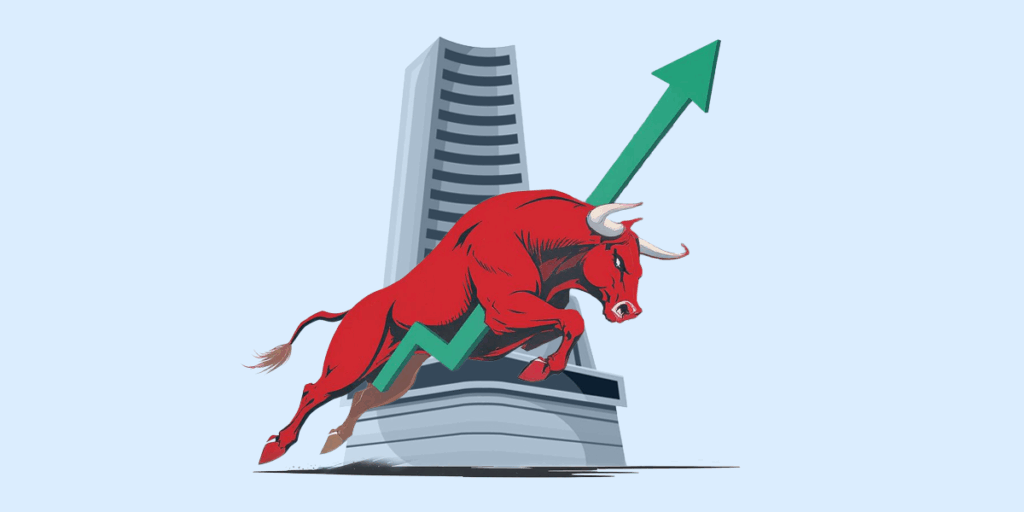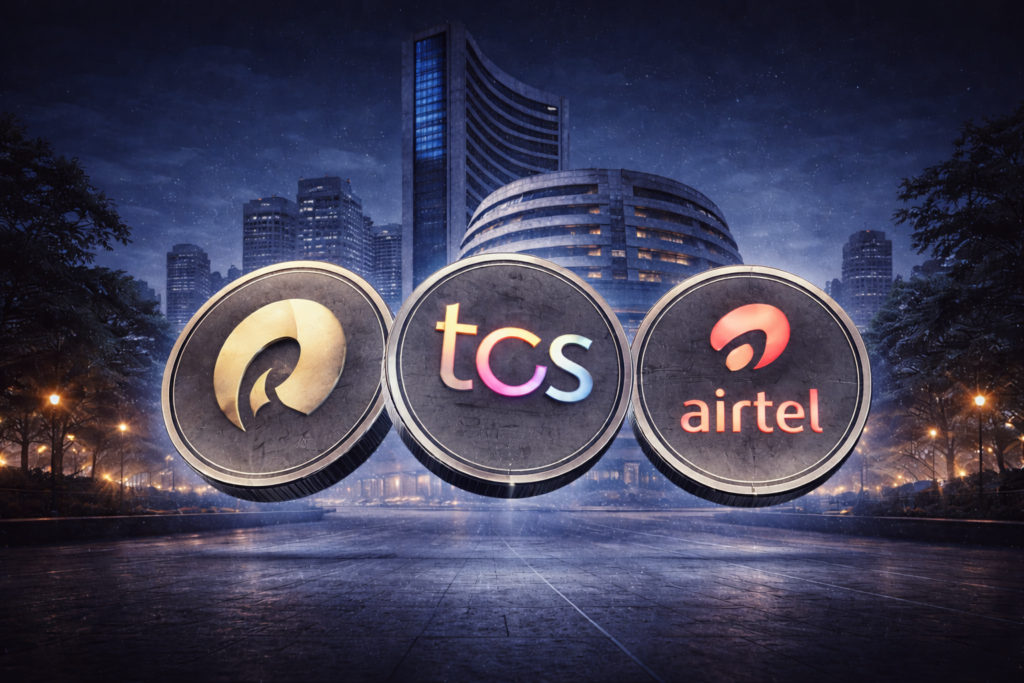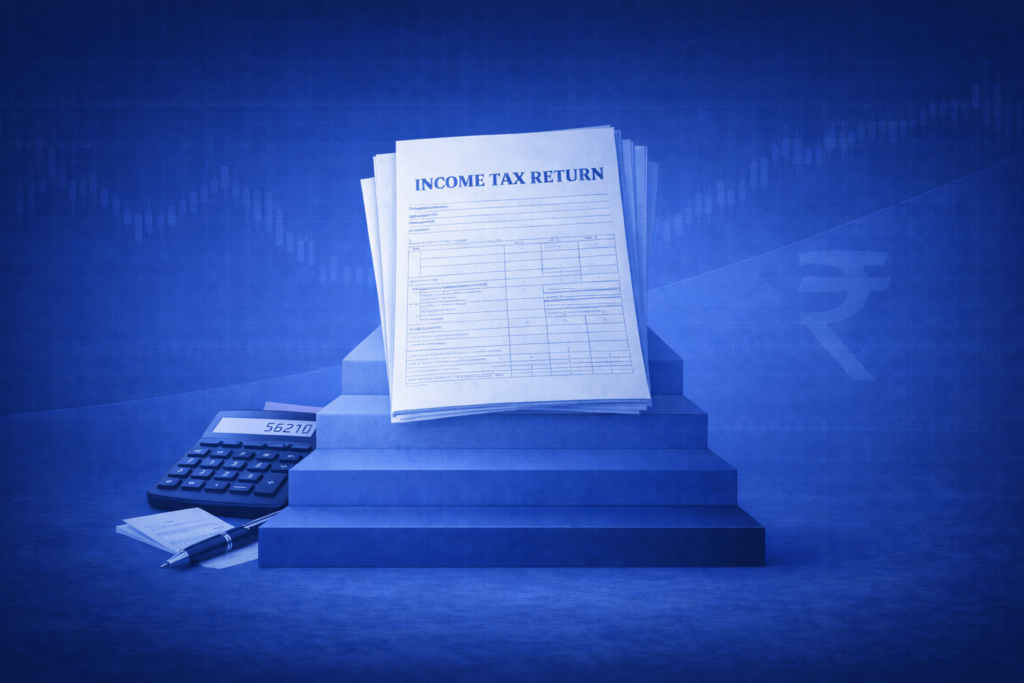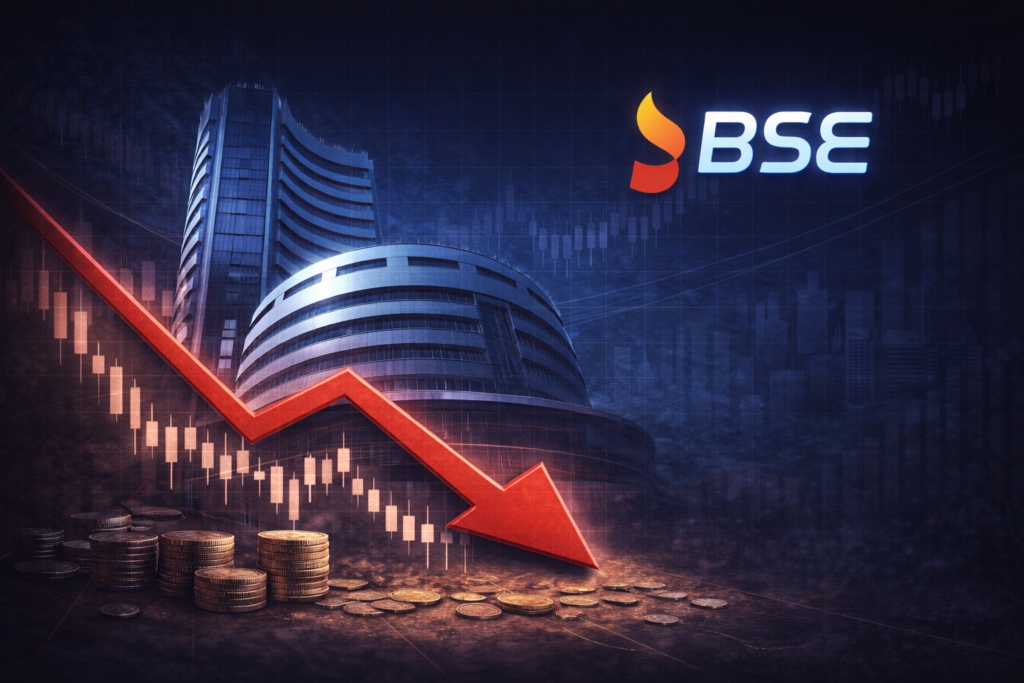Tracking Sensex stocks is very important for investors who look for stable and consistent returns. As the benchmark index of the BSE Sensex India, it reflects the performance of 30 leading large-cap companies across key sectors.
By focusing on fundamentally strong businesses within this index—those with solid financials, proven track records, and growth potential—investors can build a portfolio that balances long-term capital appreciation with resilience in volatile markets.
Read along to know more!
What Is Sensex in the Share Market?
The Sensex, short for Sensitivity Index (BSE Sensex), is the benchmark index of the Bombay Stock Exchange. It represents the performance of 30 top-performing, large, and actively traded companies across key sectors of the Indian economy.
These 30 companies are selected based on market capitalisation, liquidity, and industry representation, making the Sensex a widely followed indicator of the Indian stock market’s overall health.
For example, a rising Sensex, typically, signals positive market sentiment, while a falling Sensex often reflects broader economic or market concerns.
Why Are Sensex Stocks Important for Investors?
Sensex stocks are large-cap, blue-chip companies that are well-known for their strong fundamentals and market leadership. These stocks are important for investors because they:
- Offer stability during volatile market phases.
- Deliver steady returns through consistent growth and regular dividends.
- Have a lower risk compared to smaller, less established companies.
- Serve as a benchmark for portfolio performance—mutual funds and institutional investors often compare their returns against the BSE Sensex India.
How to Choose the Best Sensex Stocks?
Choosing the best Sensex stocks means combining strong fundamentals with sector potential and proven performance history. Since the BSE Sensex India includes 30 of the largest and most traded companies, you need to focus on stocks that can deliver consistent growth and stability over time.
1. Evaluate Company Fundamentals
Look for companies that are doing well across these core metrics:
- Revenue growth: The stocks have shown steady growth over several years and not just short-term spikes.
- Profitability: The stocks have healthy margins and strong return ratios—track ROE and ROCE.
- Debt levels: The stocks have a low or manageable debt-to-equity ratio.
- Consistency: The stocks can perform in both bullish and bearish markets.
2. Analyse Sector Strength
Focus on sectors with long-term growth drivers:
| Sector | Examples of Sensex Stocks | Why It Matters |
| Banking & Financial Services | HDFC Bank, ICICI Bank | Strong credit growth and financial inclusion trends |
| FMCG | ITC, Hindustan Unilever | Stable demand even in downturns |
| IT Services | Infosys, TCS | Global outsourcing and tech adoption |
| Auto | Mahindra & Mahindra, Tata Motors | EV growth and rising domestic demand |
| Pharma | Sun Pharma, Dr. Reddy’s | Expanding healthcare and exports |
3. Review Historical Performance
Use past data to assess stability and growth potential:
- CAGR (3, 5, and 10 years) for price returns
- Dividend history and total returns
- Recent market sentiment and news triggers
Pro tip: The best Sensex stocks are those where fundamental strength aligns with sector tailwinds and not just those with high past returns.
List of Best Performing Sensex Stocks (Updated)
Here is an updated list of some of the best Sensex stocks:
| Stock | 52-Week High (₹) | 5 Yr Return (%) | P/E | Market Cap (₹ Cr) |
| Reliance Industries (RELIANCE) | 1,551.00 | 48.44 | 41.01 | 18,68,022.01 |
| HDFC Bank (HDFCBANK) | 2,037.70 | 87.74 | 21.81 | 15,11,885.97 |
| Bharti Airtel (BHARTIARTL) | 2,045.80 | 273.83 | 42.54 | 11,10,263.27 |
| Tata Consultancy Services (TCS) | 4,592.25 | 37.54 | 22.65 | 10,98,234.29 |
| ICICI Bank (ICICIBANK) | 1,500.00 | 289.01 | 20.75 | 10,15,198.56 |
| State Bank of India (SBIN) | 875.45 | 325.65 | 10.37 | 7,57,464.48 |
| Infosys (INFY) | 2,006.45 | 56.65 | 22.83 | 5,91,609.96 |
| Hindustan Unilever (HINDUNILVR) | 3,035.00 | 22.15 | 53.84 | 5,83,591.48 |
| Bajaj Finance (BAJFINANCE) | 978.80 | 161.59 | 30.47 | 5,30,078.64 |
| ITC (ITC) | 499.96 | 119.21 | 14.82 | 5,21,493.91 |
Should You Invest in Sensex Stocks for the Long Term?
Investing in Sensex stocks can be a strong long-term strategy because these companies represent India’s largest, most established, and consistently performing businesses. Some reasons why you should invest in these stocks for the long term are:
- Diversification: Exposure to multiple sectors like banking, IT, FMCG, auto, and pharma in one index.
- Reliable performance: Many Sensex constituents have a proven track record of weathering market cycles.
- Dividend income: Several Sensex companies, such as ITC and HDFC Bank, regularly reward shareholders with dividends.
- Lower volatility: Large-cap blue-chip stocks tend to have more stable price movements over the long term.
Ideal For
- Retirement planning: Stable growth and dividends make Sensex exposure suitable for long-term wealth preservation.
- SIPs (Systematic Investment Plans): Rupee-cost averaging works well with index-linked funds or ETFs tracking the Sensex India.
- Wealth preservation: Focus on companies with strong fundamentals and long operational histories.
Sensex stocks can be a solid core for a long-term portfolio, especially when combined with disciplined investing and a focus on quality.
Sensex vs Other Indices – How It Compares
The Sensex is one of India’s most widely tracked benchmarks, but it’s not the only index investors use. Each index has its own role depending on an investor’s strategy, time horizon, and sector preference.
| Feature | Sensex | Nifty 50 | Sectoral Indices |
| Number of Stocks | 30 | 50 | Varies by sector (10–20 typically) |
| Exchange | BSE (Bombay Stock Exchange) | NSE (National Stock Exchange) | BSE or NSE |
| Coverage | Large-cap companies across key sectors | Broader large-cap market | Focused on a specific sector, investment theme, or strategy |
| Historical Importance | India’s oldest index (since 1986) | Launched in 1996 | Sector-specific tracking |
| Volatility | Slightly lower due to fewer stocks | Slightly higher due to broader coverage | Can be high, depending on the sector |
| When to Choose | For tracking iconic large-cap companies and long-term benchmarks | For broader market exposure | For targeted sector investing |
When to choose Sensex exposure over broader indices:
- When you want to track historically significant companies in the Sensex India.
- When your focus is on the most established and stable large-cap stocks.
- When you prefer slightly lower volatility compared to a broader index.
Looking to diversify globally? Invest in US stocks from India with Appreciate and access world-class companies for long-term compounding growth.
FAQs on Sensex Stocks
What are Sensex stocks?
Sensex stocks are the 30 largest and most actively traded companies listed on the Bombay Stock Exchange. The Sensex, short for the Stock Exchange Sensitive Index, is a benchmark that reflects the complete performance of these companies and serves as an indicator of the health of the share market Sensex.
How do I find the best Sensex stocks to invest in?
To find the best Sensex stocks to invest in, evaluate companies on factors like revenue growth, profitability, debt levels, and consistent performance. You can track this information through Sensex India updates on the BSE website, financial news portals, and brokerage research reports.
Are Sensex stocks good for long-term investment?
Sensex stocks are often seen as good for long-term investment as they are large, established companies with stable market presence. Many investors use the BSE Sensex India as a benchmark for their portfolios, as these companies typically have strong fundamentals and operate in key sectors, driving the Indian economy.
What is the difference between Sensex and Nifty?
The main difference between Sensex and Nifty is the number of companies in the index. Sensex India includes 30 companies listed on the BSE, while Nifty includes 50 companies listed on the NSE. Both serve as benchmark indices for tracking market performance, but they have different compositions and sector weightages.
How often are Sensex stocks reviewed or changed?
Sensex stocks are reviewed twice a year: once in June and once in December. This review guarantees that the index reflects the current state of the market by including only the most relevant, best-performing, and financially stable companies in the share market Sensex.
Disclaimer
The information provided in this article is for educational and informational purposes only. It should not be considered as financial or investment advice. Investing in stocks involves risk, and it is important to conduct your research and consult with a qualified financial advisor before making any investment decisions. The author and publisher are not responsible for any financial losses or gains that may result from the use of this information.























